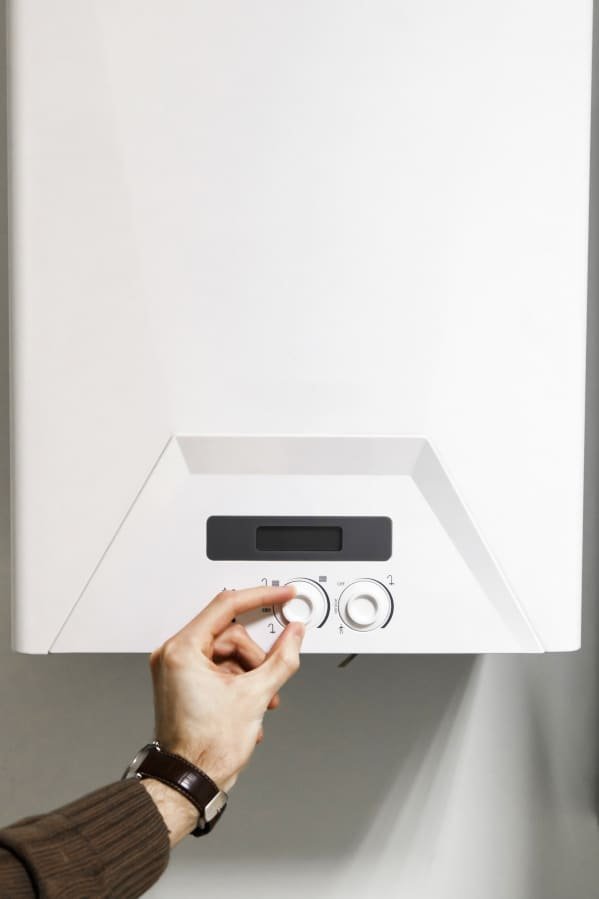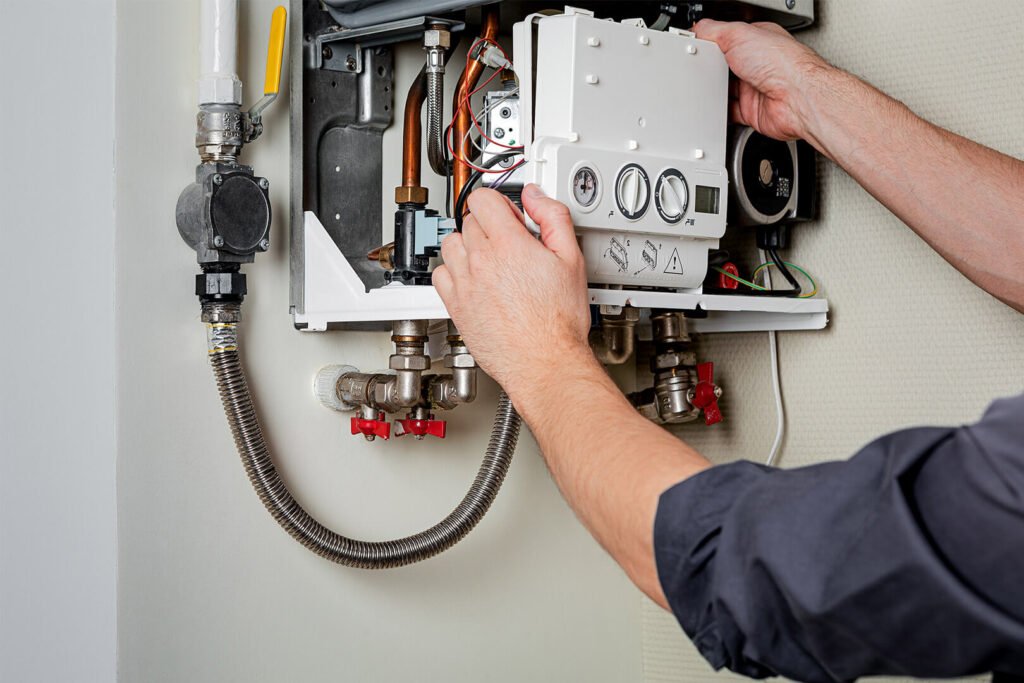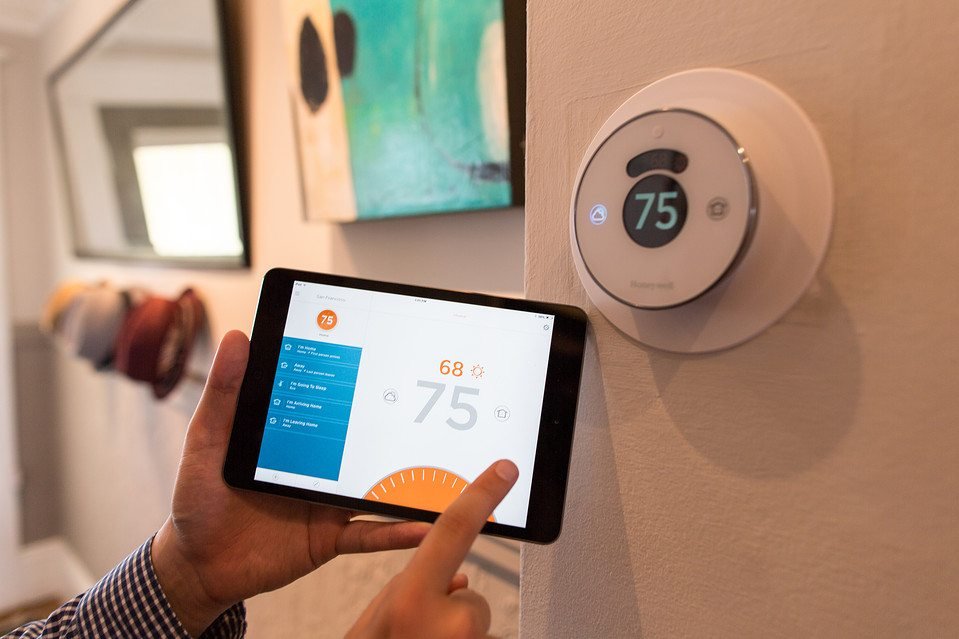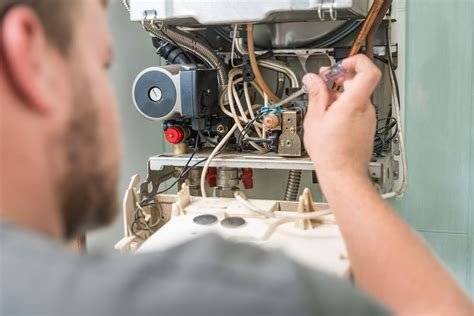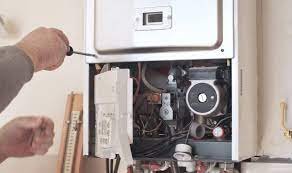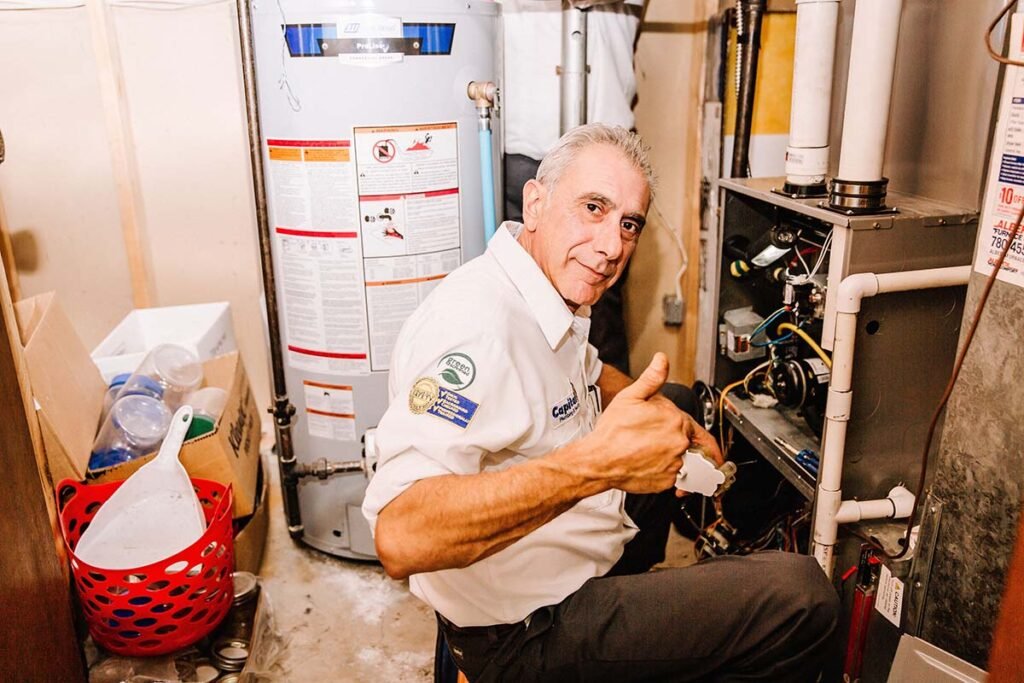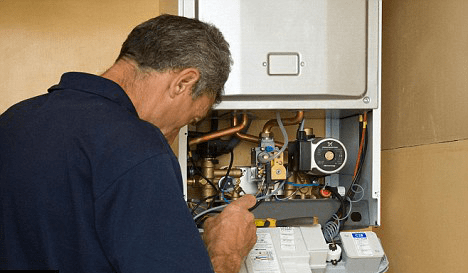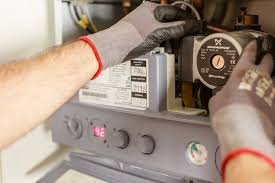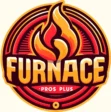Furnace Installation Edmonton - Your Reliable Heating Professionals
Furnace Pros Plus is your trusted partner for all your heating requires. With years of experience, we concentrate on delivering superior heating services to keep your home warm and comfortable. Our group of knowledgeable service technicians dedicate themselves to offering professional furnace installation, maintenance, and repair work services. We comprehend the importance of an appropriately working heating system, specifically during the cooler months. We prioritize performance, price, and consumer fulfillment in every task (huge or small). Whether you need a brand-new furnace, a routine check-up, or emergency situation repairs, depend on Furnace Pros Plus for dependable and efficient heating services that make sure comfort and comfort.
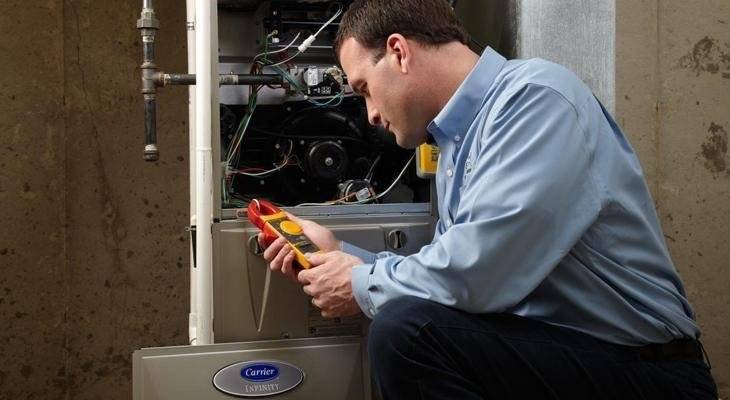
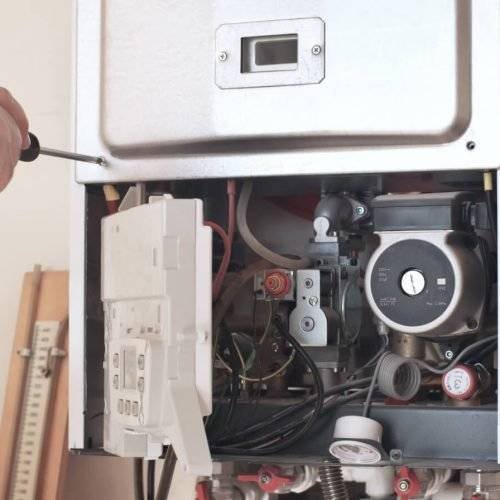
Who Are We?
Residential Heating Replacements and Repairs
At Furnace Pros Plus, we are Edmonton’s premier destination for all your residential furnace installations. With a dedication to excellence and an enthusiasm for ensuring your indoor benefit, we have become reputable name in the heating & cooling market.
Got a heater emergency situation? Contact us 24/7 at (587) 409-5683
For many years, we have devoted ourselves to using superior furnace installations, tune-ups, and repairs to residences in Edmonton. Our group of extremely knowledgeable service technicians boasts thorough experience and understanding in managing a wide array of heating units, making us the go-to experts in Alberta.
Associating with furnace services, we take pride in offering efficient and dependable services, customizing our services to your particular requirements. If you need a brand-new heater for your home, our group will guarantee a seamless installation that ensures your area stays comfortable and warm.
Regular maintenance is crucial to the longevity and efficiency of your heater, and we provide detailed maintenance methods to keep your system running smoothly. Our committed experts conduct thorough assessments, identifying and handling any possible concerns without delay.
In times of unanticipated breakdowns, our swift and efficient repair work services are here to save you from the cold. We comprehend the seriousness of heating emergencies and are easily available to provide immediate help.
At Furnace Pros Plus, we are more than merely a heating contractor; we are your partners in producing a comfortable and warm environment for your residence in Edmonton. Trust us for exceptional service, quality craftsmanship, and a dedication to your complete fulfillment. Your comfort is our priority, and we eagerly anticipate serving you.
How can we help you?
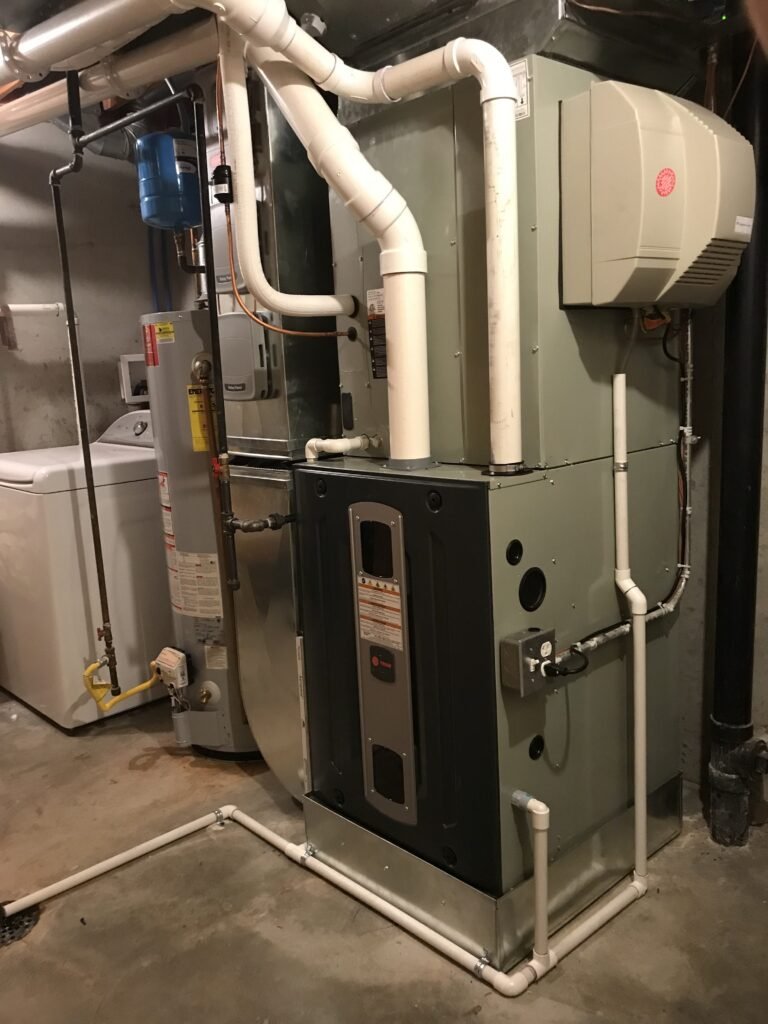
Understanding the Expense of Installing a New Furnace
Introduction
A functioning furnace is vital when it concerns preserving a comfy and warm home during the cooler months. However, there comes a time when setting up a brand-new furnace is inescapable.
Understanding the costs associated with this process is crucial for house owners to strategy and budget plan appropriately. This thorough guide explores the various aspects influencing the expense of setting up a brand-new furnace.
Aspects Affecting Heating System Setup Costs
Type of Heating system:
- Gas Heaters: Popular for their performance, they usually cost more upfront however use lower operating expense.
- Electric Furnaces: They are cheaper than gas furnaces. However, electrical designs tend to have higher operational costs due to electrical energy costs.
- Oil Heating systems: These are less common and can be more expensive due to the expense of oil.
Heating System Size and Capability
- Square Footage: The size of your home directly affects the capacity needed for the furnace.
- BTU Score: Higher BTU rankings relate to more effective furnaces, which can increase the expense.
Effectiveness Ratings
Annual Fuel Usage Effectiveness (AFUE):
Higher AFUE rankings imply much better performance however likewise included a greater price tag.
Brand and Quality
Top-tier brand names typically command higher costs due to their credibility for quality and longevity.
Installation Complexity
- Existing System: Updating from an old system may require extra work and expense.
- Ductwork: The condition and design of existing ductwork can affect installation complexity.
- Accessibility: Difficult access to the installation site can increase labour costs.
Labour Costs
Labour costs differ by area. In addition, the complexity of the installation can affect labour costs.
Extra Costs to Consider
- Permits: Some areas require authorizations for furnace installation.
- Inspections: City laws may require post-installation evaluations for safety compliance.
- Thermostats: Updating to a smart thermostat can incur extra costs.
Average Expense of Heating System Installation
While costs can differ extensively based on the aspects pointed out above, here are some average expense varieties for furnace installation:
- Gas Heating systems: $2,000 to $5,000.
- Electric Furnaces: $1,000 to $2,500.
- Oil Heating systems: $2,500 to $6,000.
These are rough price quotes and can differ based on particular home requirements.
Cost-Saving Tips.
Research and Compare.
Get numerous quotes from different specialists to make sure competitive prices.
Seek Rebates and Rewards.
Try to find energy performance refunds offered by energy business or government programs.
Consider Long-Term Cost Savings.
Buying a more efficient furnace can reduce energy bills in time.
Conclusion
Setting up a brand-new furnace is a substantial investment, and understanding the costs included is vital for any house owner. By thinking about the type of furnace, installation complexity, labour costs, and extra costs, house owners can much better prepare for this required upgrade. Keep in mind to look for numerous quotes, explore readily available refunds, and think about long-term energy savings when choosing.
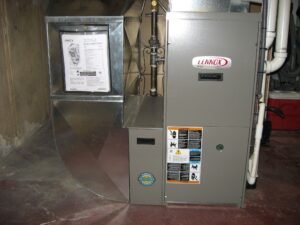
The Right Dimension Heating System for Your Home: A Comprehensive Overview
Introduction
Choosing the best size furnace for your home is crucial for ensuring efficient heating and comfort during the cooler months. A heater that’s too small won’t keep your home warm, while one that’s too large can trigger unnecessary energy usage and uneven heating. This guide will help you determine the ideal furnace size for your home.
Understanding Heating System Sizing: BTU and Effectiveness
We determine the size of a heater in British Thermal Units (BTU). One BTU is the energy needed to raise the temperature of one pound of water by one degree Fahrenheit. When choosing a heater, 2 key aspects contribute: the BTU score, showing the furnace’s heating capacity, and its performance score, measured in Annual Fuel Usage Effectiveness (AFUE).
Computing Your Home’s Heating Needs
You need to compute your home’s heating requires to determine the right furnace size. The computation considers aspects like square video, climate zone, insulation quality, window type, and home design. Usually, you need approximately 30-60 BTUs per square foot. However, this differs based on your home’s particular attributes.
Environment Zone and Its Effect On Heating System Size
Your geographic location substantially influences the furnace size needed. Homes in cooler regions, such as Edmonton, require more BTUs per square foot than those in milder environments. Speak with a heating professional for particular suggestions.
The Role of Home Insulation in Heating System Sizing
Good insulation reduces the quantity of heat loss, suggesting you can go with a smaller furnace. Assess your home’s insulation in the walls, attic, and windows. Updating insulation can be a cost-efficient way to minimize heating needs.
Factors To Consider for Various Kinds Of Heaters
There are various kinds of furnaces, like gas, electrical, and oil. Each type has special sizing factors to consider. Gas furnaces are common and efficient, electrical furnaces are more uncomplicated and safer however typically more expensive to operate, and specialists set up oil furnaces where natural gas isn’t readily available.
Value of Professional HVAC Evaluation
A professional HVAC evaluation is important. Professionals think about all variables, consisting of ductwork and home design, to suggest the ideal furnace size. They can carry out a Manual J computation, the market requirement for identifying heating and cooling loads.
Energy Effectiveness and Cost-Effectiveness
Choosing a heater with a high AFUE score is crucial for energy performance and expense savings. Modern furnaces have AFUE rankings in between 80% and 98%, showing the portion of fuel converted into heating. While high-efficiency furnaces are more expensive upfront, they can cause substantial savings in the long run.
Dealing With Typical Misconceptions About Heating System Sizing
A common mistaken belief is that a larger furnace is always much better. However, a large furnace can cause short cycling, where the furnace often turns on and off, minimizing performance and lifespan. Conversely, a small furnace struggles to heat your home adequately.
Long-Term Benefits of the Right-Sized Heating system
Choosing the right-sized furnace has long-term advantages, consisting of constant comfort, lower energy bills, lowered carbon footprint, and less maintenance concerns. It’s a balance in between upfront costs and long-term savings.
Summary: Making an Informed Decision
Choosing the best size furnace is a decision that affects your home’s comfort and energy performance for many years to come. By understanding the fundamentals of furnace sizing and seeking professional assistance, you can make an informed decision that ensures ideal heating for your home.
Keep in mind, the key to an efficient and comfortable home depend on choosing the best furnace and regular maintenance and thinking about other aspects like insulation and climate. With this thorough guide, you are well-equipped to choose the perfect furnace for your home, offering heat and comfort for lots of winters.

Replace or Repair Heating System: A Extensive Overview
Introduction
Deciding whether to replace or fix your furnace is a substantial decision for any house owner. The option affects your immediate comfort and safety and has long-term financial ramifications. This thorough guide will explore various elements to think about, assisting you make an informed decision.
Understanding Your Heating system
Lifespan and Types
Heating systems usually have a lifespan of 15-20 years. The two main types are gas and electrical, each with different maintenance and operational costs.
Indications of Problems
Typical indications that your furnace may need attention include uncommon noises, irregular heating, and increased energy bills.
When to Consider Repairing Your Heating System
Repair is typically the best option for minor concerns or furnaces that are relatively new and still under guarantee.
Cost-Effectiveness
Repairing can be more economical for minor concerns. However, regular repairs might indicate a deeper problem.
Ecological Impact
Repairs typically have a lower environmental impact than changing the whole system.
When Replacement is the Very Best Option
You ought to think about replacement if your furnace is near completion of its lifespan, repairs are becoming increasingly expensive, or if it could be more energy efficient.
Long-lasting Expense Cost Savings
While the initial expense is higher, a brand-new furnace can be more energy-efficient, saving you cash on energy bills.
Technological Developments
More recent designs come with sophisticated technology, such as wise thermostats, which use much better temperature level control and performance.
Weighing Your Choices
Expense Analysis
Compare the expense of repairs in time versus the one-time cost of a brand-new furnace.
Energy Effectiveness
Assess how your existing furnace’s performance is affecting your energy bills.
Home Value
Consider how a brand-new furnace might increase the worth of your home, specifically if you prepare to offer in the future.
Professional Recommendations
Seeking Specialist Opinion
Speak with HVAC experts to assess the state of your existing furnace and get price quotes for repair work and replacement.
Value of Regular Upkeep
Regular maintenance can extend the life of your furnace, whether you choose to fix or replace it.
Summary
In conclusion, choosing to fix or replace your furnace depends on various aspects, consisting of age, condition, expense, and energy performance. By thinking about these aspects and seeking professional recommendations, you can make a decision that ensures comfort, safety, and financial prudence for your home.
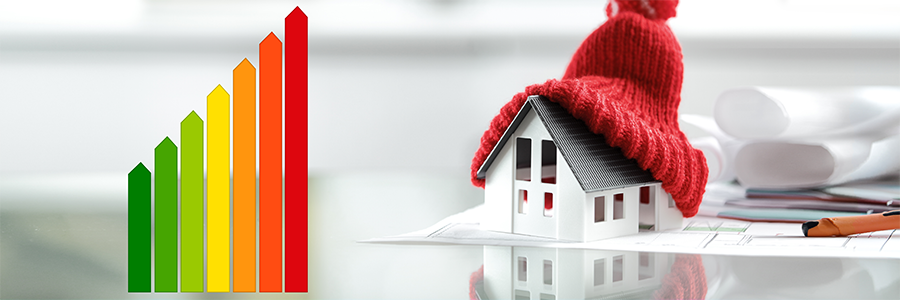
What Season is the Most Inexpensive to Replace The Heating System?
Will a Modern Heating System Reduce Your House Insurance?
Introduction
Home maintenance can be a substantial investment, specifically when it includes crucial systems like heating. One of the most substantial costs house owners face is changing their furnace. However, timing this replacement can cause substantial savings. This article explores the best season to replace your furnace, thinking about cost-effectiveness and usefulness.
Understanding Heating System Replacements
The Requirement for Replacement
Before diving into timing, it’s vital to comprehend why and when you ought to replace your furnace. Typical indicators include regular repairs, heating inefficiency, and the system’s age (typically beyond 15-20 years). Changing an out-of-date or malfunctioning furnace improves heating performance and ensures safety and comfort during cooler months.
Aspects Affecting Heating System Costs
Several aspects affect furnace costs, consisting of the type of furnace, brand name, capacity, and the complexity of installation. Seasonal demand is another substantial element, typically ignored, yet it plays an important role in identifying the expense.
Finest Time for Replacement: Off-Season
Why Pick Off-Season?
The off-season, primarily spring and early fall, is normally the most inexpensive to replace a heater. The demand for heater is lower during these durations than during the peak winter season. Lower demand typically results in more competitive prices from makers and installers.
Advantages of Off-Season Replacement
- Lower Costs: Decreased demand can cause discount rates and more consumer working out power.
- Schedule of Technicians: HVAC service technicians are less busy during these times, ensuring more flexible scheduling and quicker installation.
- Sufficient Time for Research: The off-season provides house owners adequate time to research different furnace designs and options without the pressure of immediate requirement.
Planning Ahead
Utilizing the off-season needs preparation. Prepare for the requirement for replacement and schedule it when the demand is low. This insight saves cash and prevents the hassle of a heater breaking down in the middle of winter.
Winter: The Peak Season
Obstacles of Winter Replacement
- Higher Costs: The demand for furnace installation and repair work peaks during winter, causing higher costs.
- Busy Schedules: Discovering a specialist might be more tough, and you might need to wait longer for a consultation.
- Emergency situation Replacements: If your furnace breaks down in winter, you might need to go with an immediate replacement, which leaves little room for expense contrast or negotiation.
Other Considerations
Energy Effectiveness and Rebates
Buying energy-efficient designs might be more expensive upfront however can cause long-term savings. Likewise, look out for refunds and tax credits offered for energy-efficient home improvements.
Value of Regular Upkeep
Regular maintenance can prolong the life of your furnace, delaying the requirement for replacement. It’s a vital element of home care that you ought to take note of.
Summary
Timing your furnace replacement can cause substantial savings. The off-season, particularly spring and early fall, is usually the most economical duration for this investment. Planning, thinking about energy performance, and preserving your existing furnace can optimize costs and make sure a warm, comfortable home.
Introduction
House owners typically ponder whether upgrading their home appliances and systems can cause savings on their home insurance premiums. One common concern is whether setting up a brand-new furnace reduces home insurance costs. This article explores how a brand-new furnace installation might impact your home insurance, using insights into insurance coverage, danger management, and possible savings.
Understanding House Insurance Premiums
Before diving into the specifics of furnaces and insurance, it’s crucial to comprehend what aspects affect home insurance premiums. Insurer assess various aspects, consisting of:
- Property Age and Condition: Insurance coverage Representatives see newer homes with upgraded systems as lower threats.
- Place: Geographic location and regional climate can substantially affect insurance rates.
- Security Features: The existence of alarms, smoke alarm, and other safety devices can reduce premiums.
The Impact of a New Heating System on House Insurance
Setting up a brand-new furnace in your house can have numerous ramifications for your home insurance:
- Decreased Threat of Fire and Gas Leaks: Modern furnaces with sophisticated safety features lessen threats like fire or gas leaks. This danger decrease can be beneficial in the eyes of insurance companies.
- Improved Energy Effectiveness: Newer furnaces are typically more energy-efficient, causing lower energy costs and a reduced environmental footprint, indirectly impacting insurance factors to consider.
- Boosted Home Value: Updating to a brand-new furnace can increase your home’s market price, which might affect the protection you need.
Prospective Insurance Discount Rates
Some insurance provider use discount rates for home improvements that minimize danger. These might include:
- Protective Gadget Discounts: You might receive a discount rate if your new furnace consists of sophisticated safety features.
- Green House Discounts: Some insurance providers supply special discount rates for setting up energy-efficient devices.
Documentation and Appraisal
To leverage a brand-new furnace installation for insurance advantages, think about the following:
- Professional Setup: Guarantee a certified professional installs your furnace, which can be a prerequisite for insurance advantages.
- Keep Records: Keep all invoices and documents for the furnace purchase and installation.
- Notify Your Insurance Company: Alert your insurer about the upgrade. They may require an inspection or extra documents.
Considerations Before Updating
While a brand-new furnace can use advantages, think about the following:
- Expense vs. Advantage Analysis: Evaluate if the long-term savings on insurance and energy bills validate the initial expense of a brand-new furnace.
- Insurance Coverage Evaluation: Talk to your insurance agent to comprehend how a brand-new furnace might particularly impact your policy.
Summary
Updating to a brand-new furnace can reduce your home insurance premiums by minimizing danger and enhancing your home’s safety and performance. However, the impact differs based on private insurance coverage and the particular features of the furnace. It’s a good idea to speak with your insurance provider to comprehend the complete advantages and ramifications of a brand-new furnace installation.
Frequently asked questions
Q: How much can I minimize my home insurance by setting up a brand-new furnace?
A: Cost savings differ based on the insurance provider and the particular features of the new furnace. Speak with your insurance agent for detailed info.
Q: Exist any particular kinds of furnaces that are more beneficial for insurance discount rates?
A: Heating systems with sophisticated safety features, high energy performance rankings, and those that meet particular environmental standards are typically more beneficial.
How to Get ready for a Heating System Installation
Setting up a brand-new furnace in your house is a substantial investment and a vital upgrade to your home. It improves the comfort of your home and improves energy performance. Correct installation preparation is crucial to make sure the installation process is smooth and worry-free. This article will assist you through the required actions to prepare for a heater installation.
Understanding Your Heating Needs
Assessing Your Area: The primary step is to assess the size of your area and comprehend the heating requirements. A too-large or too-small furnace for your home can cause inefficiency and higher energy costs. Consulting with a heating professional to determine the best furnace size is crucial.
Choosing the Right Heating System: There are various furnaces, consisting of gas, electrical, and oil. Each has advantages and disadvantages; the option depends on your location, budget plan, and personal preference. Research and speak with experts to make an informed decision.
Pre-Installation Preparation
Choosing a Qualified Installer: We can not overemphasize the importance of choosing a qualified and experienced installer. Try to find experts with excellent reviews and appropriate accreditation. They will make sure a proper installation and guide you through the process.
Clearing the Location: Guarantee the area where you prepare to set up the furnace is clear of any mess. A clean area supplies easy access to the installation group and speeds up the process. Remove any valuable or vulnerable products from the area to prevent unexpected damage.
Getting ready for Downtime: Depending on the complexity of the installation, your heating system may be down for a couple of hours to a day. Plan appropriately, specifically if the installation is during cooler months.
Throughout Setup
Access to Your Home: Guarantee the installers have easy access to your home, that includes ensuring that parking is readily available and a clear path to the furnace location.
Communication: Stay readily available to answer any concerns the installers might have. Clear communication can help fix any concerns quickly and guarantee your installation goes as prepared.
Post-Installation Checks
Check the Setup: Once the installation is complete, check the work with the installer. Guarantee that the installation is complete which the area is clean.
Understanding the System: Have the installer describe the performance of the new furnace, consisting of how to change filters and the standard troubleshooting actions.
Service warranty and Documentation: Ensure you receive all required documents, consisting of guarantee info and running manuals. Keep these files in a safe place for future referral.
Conclusion
Getting ready for a heater installation includes understanding your heating requires, choosing the best furnace, and choosing a qualified installer. By following these actions, you can make sure a hassle-free installation process and enjoy the comfort and performance of your new heating system for many years to come. Keep in mind, a little preparation goes a long way in ensuring a smooth and successful furnace installation.
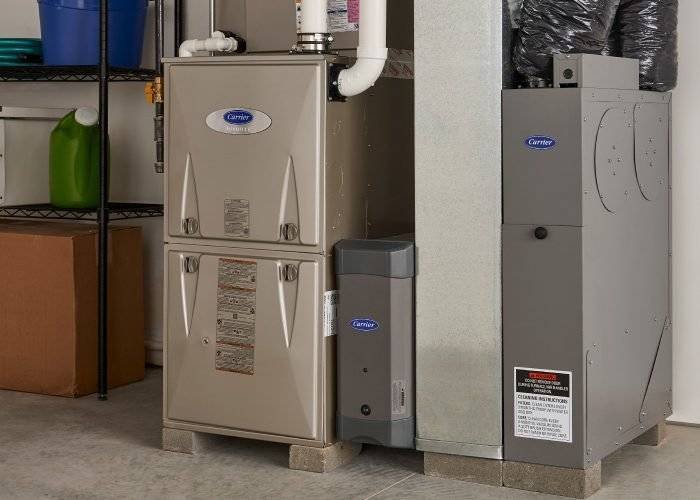
Our Work


